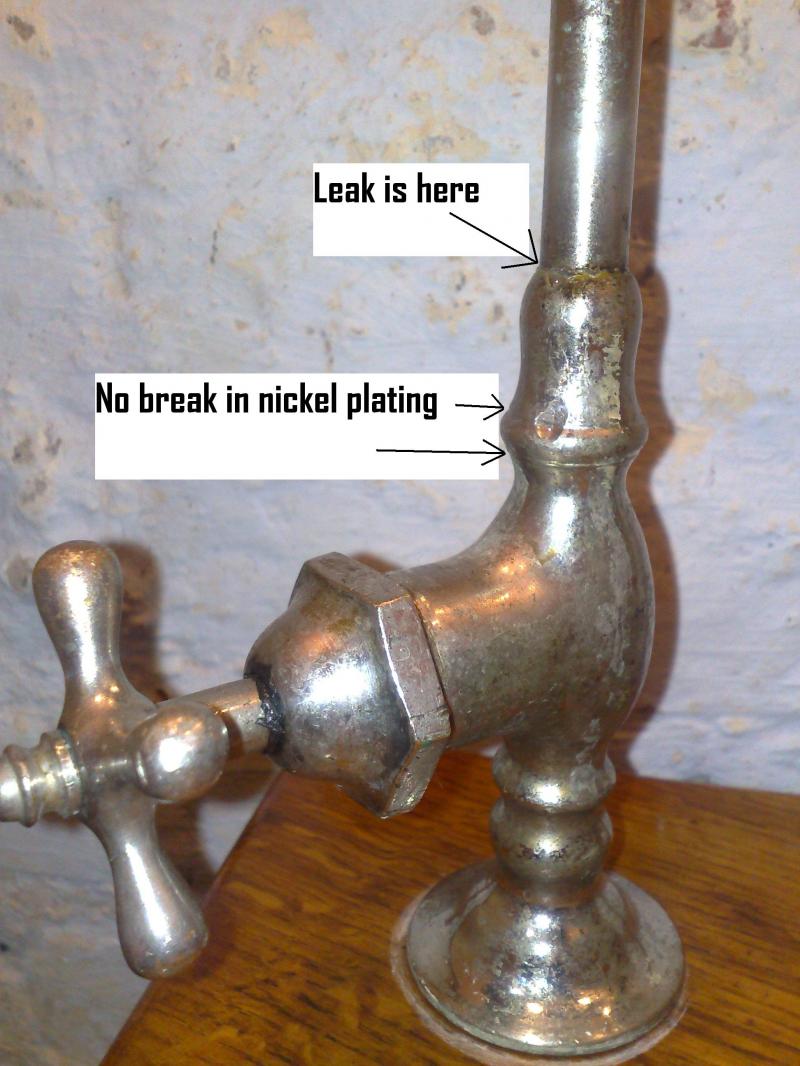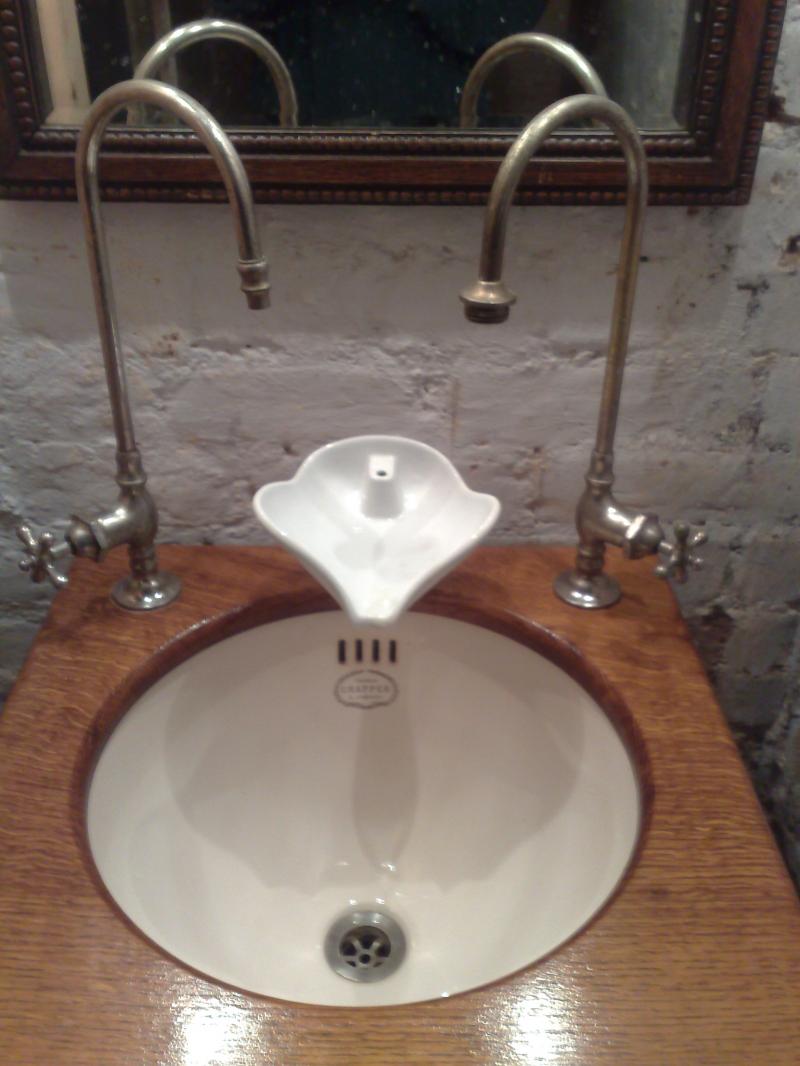- Joined
- 15 Feb 2009
- Messages
- 7
- Reaction score
- 0
- Country

I have a pair of antique separate hot and cold swan-neck taps. Only the hot water spout swivels slightly where the spout meets the body (above the valve), and there is a small leak I'm trying to stop at that swivel point. I believe it was NOT originally intended to swivel for two reasons:
1) The taps are very old, at least 75 years. I doubt domestic swivel spouts were commonplace back then, and maybe didn't exist at all.
2) Only the hot swivels, and only slightly (about 1/8 turn either way). The cold does not swivel at all.
I've inspected it carefully with a 10x magnifying glass, and there is definitely no break in the nickel plating anywhere below this point, so it appears there is no way to disassemble it. That begs the question of how it was originally assembled. I suspect that either the nickel plating has sealed and hid the original threaded joint, or perhaps the spout was originally inserted into the body and either soldered there or it relied on a friction fit.
If I don't swivel or bump it for a couple weeks, limescale builds up around the leak and stops the leak, which would be a satisfactory solution except for my guests who often bump it or try to swivel it, which breaks the limescale and leads to another two weeks of leaking.
To clarify, the leak is NOT coming from the valve. The leak is downstream from the valve (between valve and spout), so the water that leaks out is only the water that remains inside the swan neck after the valve is closed (the leak stops after that water is drained away). Therefore the leak is driven by gravity, not water pressure. I attempted to solder the joint, but it appears there is little surface area where the spout and body meet, and I couldn't manually clean the surfaces because I couldn't disassemble the unit. The soldering stopped the leak until the next guest forced the spout to swivel, which presumably broke the solder seal which had too little surface area to have much strength. I have also tried using my finger to force a bit of plumbers grease into the leak, which also worked until the next guest forced it to swivel.
Does anyone have any suggestions for how to stop that leak, other than supervise my guests while they use the bathroom?
1) The taps are very old, at least 75 years. I doubt domestic swivel spouts were commonplace back then, and maybe didn't exist at all.
2) Only the hot swivels, and only slightly (about 1/8 turn either way). The cold does not swivel at all.
I've inspected it carefully with a 10x magnifying glass, and there is definitely no break in the nickel plating anywhere below this point, so it appears there is no way to disassemble it. That begs the question of how it was originally assembled. I suspect that either the nickel plating has sealed and hid the original threaded joint, or perhaps the spout was originally inserted into the body and either soldered there or it relied on a friction fit.
If I don't swivel or bump it for a couple weeks, limescale builds up around the leak and stops the leak, which would be a satisfactory solution except for my guests who often bump it or try to swivel it, which breaks the limescale and leads to another two weeks of leaking.
To clarify, the leak is NOT coming from the valve. The leak is downstream from the valve (between valve and spout), so the water that leaks out is only the water that remains inside the swan neck after the valve is closed (the leak stops after that water is drained away). Therefore the leak is driven by gravity, not water pressure. I attempted to solder the joint, but it appears there is little surface area where the spout and body meet, and I couldn't manually clean the surfaces because I couldn't disassemble the unit. The soldering stopped the leak until the next guest forced the spout to swivel, which presumably broke the solder seal which had too little surface area to have much strength. I have also tried using my finger to force a bit of plumbers grease into the leak, which also worked until the next guest forced it to swivel.
Does anyone have any suggestions for how to stop that leak, other than supervise my guests while they use the bathroom?


